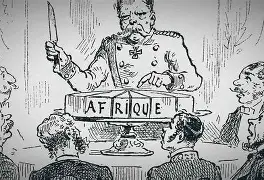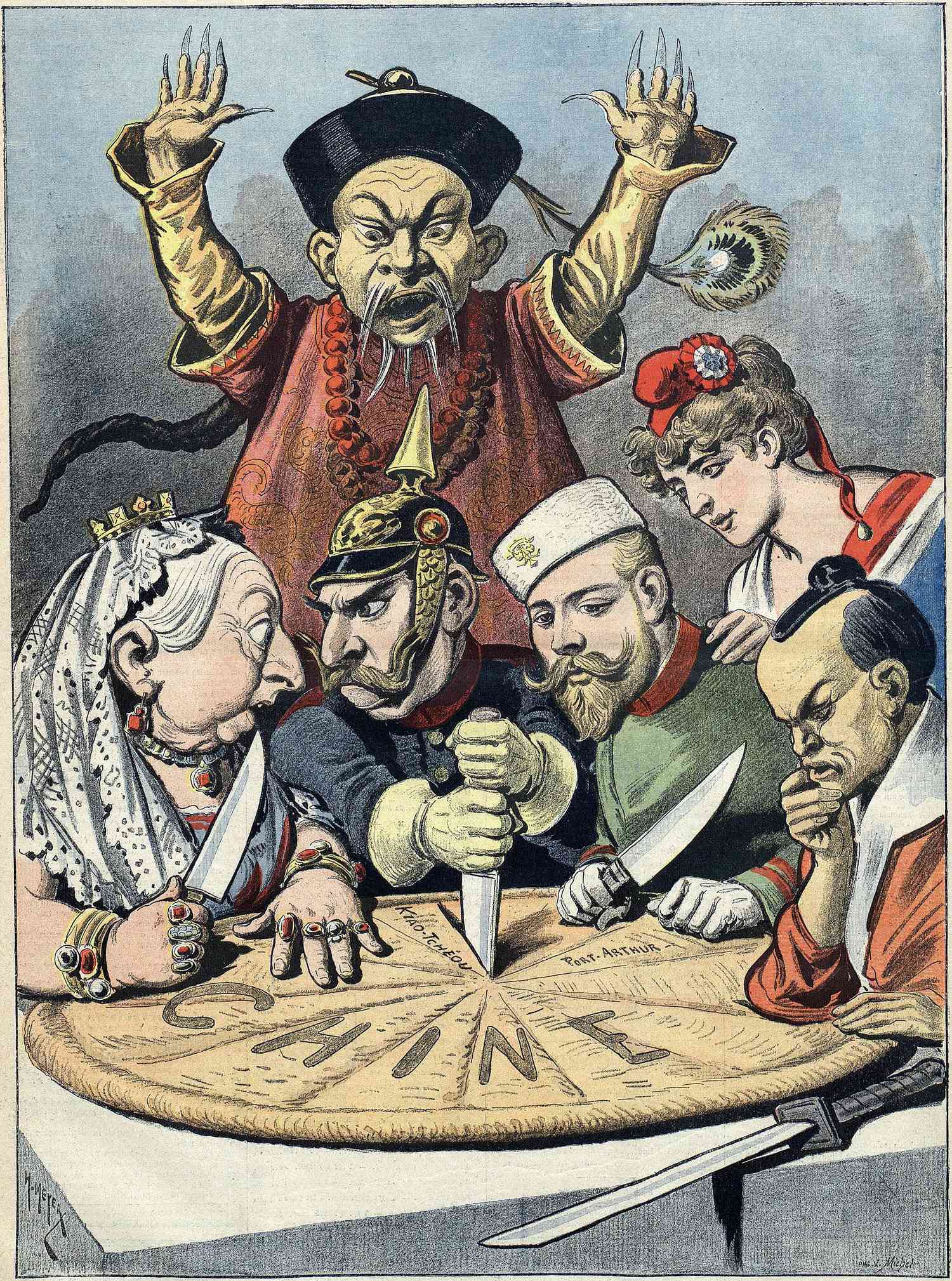AP World Unit 6 Illustrative Examples
1/20
Earn XP
Description and Tags
1750 - 1900
Name | Mastery | Learn | Test | Matching | Spaced |
|---|
No study sessions yet.
21 Terms
Nationalism
commonality among people based on shared language, religion & social customs, Linked with desire for self-rule in territory
Scientific racism
The belief that races possess distinct characteristics that determine their cultural or individual achievements, often used to justify inequality.
social darwinism
white / europeans = best
fittest survive → justifies imperialism and racism
a theory applying Darwinian principles to human societies, suggesting that stronger nations have the right to dominate weaker ones.
Civilizing mission
A rationale for imperialism, claiming that Western powers had a duty to civilize and uplift supposedly "lesser" cultures through colonization.
Indian Rebellion of 1857
A major uprising against British rule in India, marked by widespread revolt among various groups against colonial policies and practices.
Yaa Asantewaa War (West Africa)
A conflict from 1900 in which Queen Yaa Asantewaa led the Ashanti people in a revolt against British colonial rule, aiming to resist the annexation of the Ashanti kingdom.
The British won due to their stronger military
Cherokee Nation
Semi-autonomous government
Indian removal act → trail of tears → creation of new nation
operated in the southeastern United States, comprising the Cherokee people and their attempts to maintain their sovereignty and culture despite forced relocation.
Xhosa Cattle Killing Movement
A mass movement among the Xhosa people in the 1850s, where they believed that destroying their cattle and crops would lead to the expulsion of British settlers and restoration of their ancestors. This movement ultimately led to famine and suffering among the Xhosa population.
Example of religious rebellions
Congo Free State
Private to state control expansion
Transition of governance under King Leopold II (Belgium), marked by exploitation and severe human rights abuses, particularly in rubber production.
British East India Company
A powerful trading corporation chartered in 1600, it played a significant role in British colonial expansion in India and the establishment of trade monopolies.
Private to state control expansion
Berlin Conference

Expansion through diplomacy
Otto Van Bismark held conference
A meeting held in 1884-1885 where European powers negotiated and formalized claims to territory in Africa, leading to the partition of the continent without African representation.
Settler colonies
Colonies established by migrants who settled in new territories to dominate the Indigenous population and utilize land for agriculture or resources.
Pan-Slavism
A political and cultural movement aimed at the unity of all Slavic peoples, promoting their interests and independence.
Uniting even those under Ottoman & Austrian rule
Export economies
Economic systems focused on producing goods for sale outside the region, often reliant on raw materials and agricultural products.
Example of Raw Materials from colonies
Cotton = Egypt + India
Palm oil = West Africa
Rubber = Southeast Asia + Congo
Opium Wars
China lost power due to failure to industrialize
The Opium Wars were two conflicts in the mid-19th century between China and Western powers, primarily Britain, over trade imbalances and the illegal opium trade, resulting in significant territorial and economic concessions for foreign powers.
These wars highlighted China's struggle to maintain sovereignty while facing Western imperialism.
Treaty of Nanjing
The first unequal treaty signed in 1842, which ended the First Opium War between China and Britain. It imposed heavy reparations on China and ceded Hong Kong to British control.
Spheres of Influence
Regions where foreign powers had exclusive trading rights and influence in China during the late 19th and early 20th centuries.

These zones were established by various Western nations and Japan, often enforcing their interests at the expense of Chinese autonomy.
Port of Buenos Aires
A major port city in Argentina that served as a key trading hub during the 19th century, facilitating trade between Europe and Latin America.
Lead to an increase dependence on British investments and foreign influence in the region.
Irish Potato Famine
A period of mass starvation and disease in Ireland from 1845 to 1852, caused by potato blight, leading to significant emigration and social upheaval.
Lebanese Diaspora
The movement of Lebanese people from Lebanon to various countries around the world, particularly in the 19th and 20th centuries, resulting in vibrant communities in regions like South America, North America, and parts of Africa.